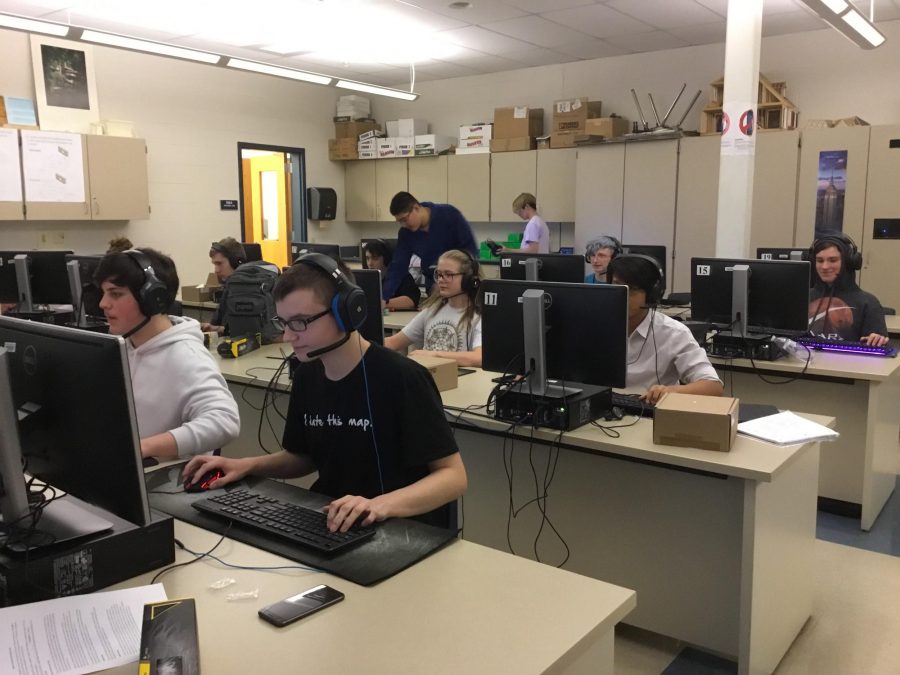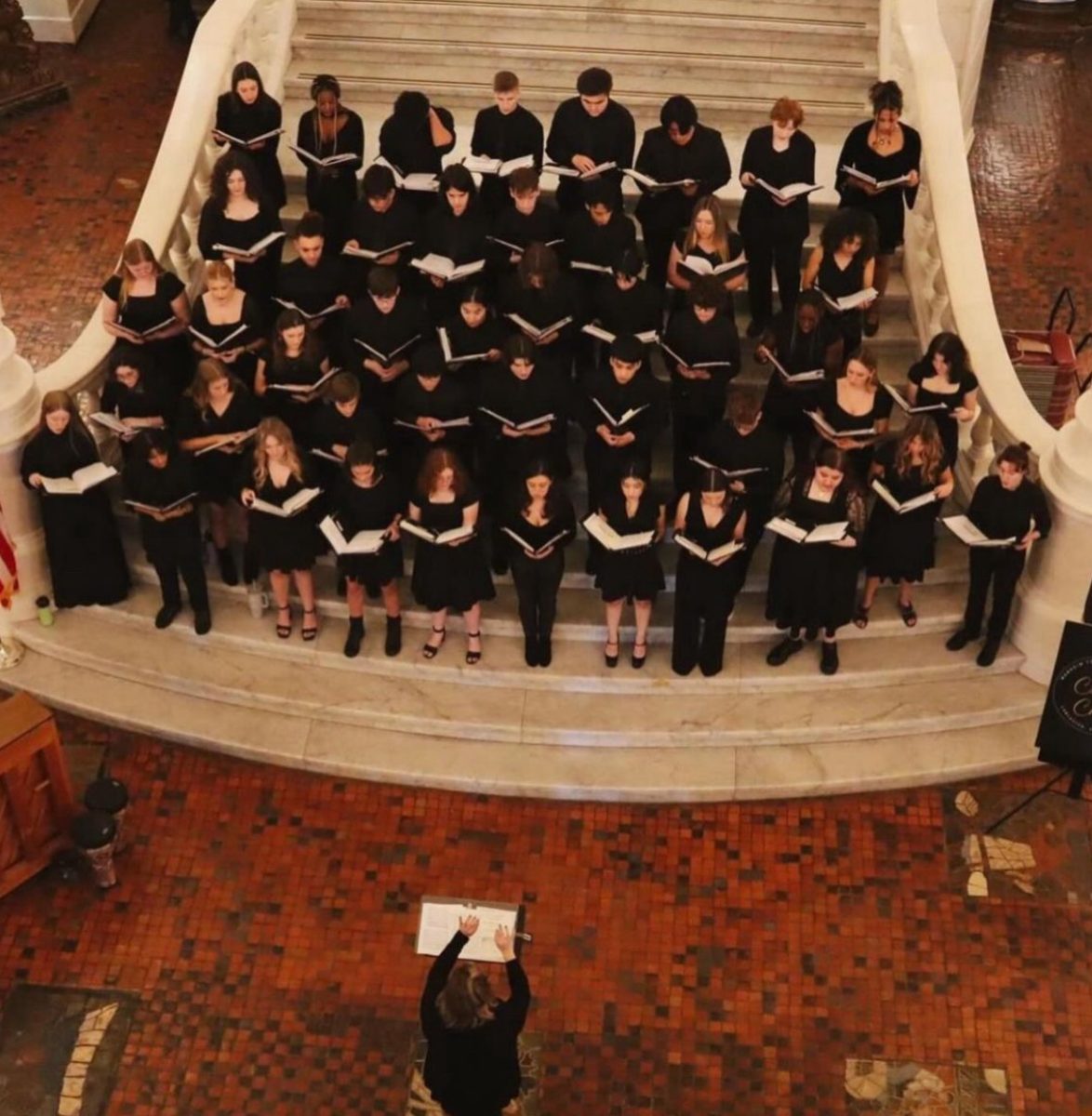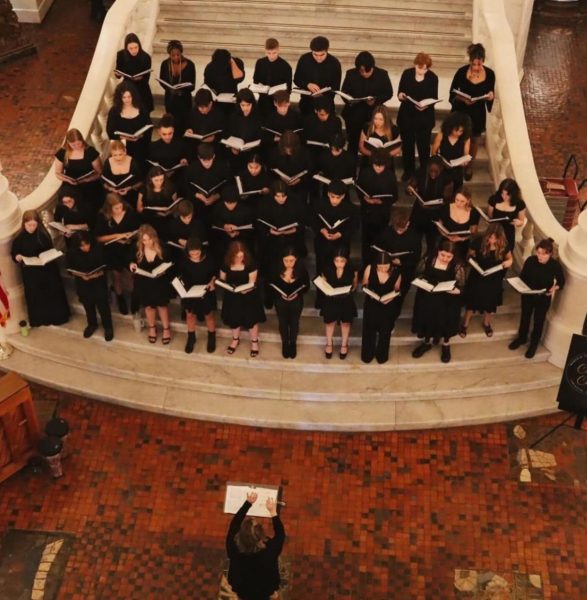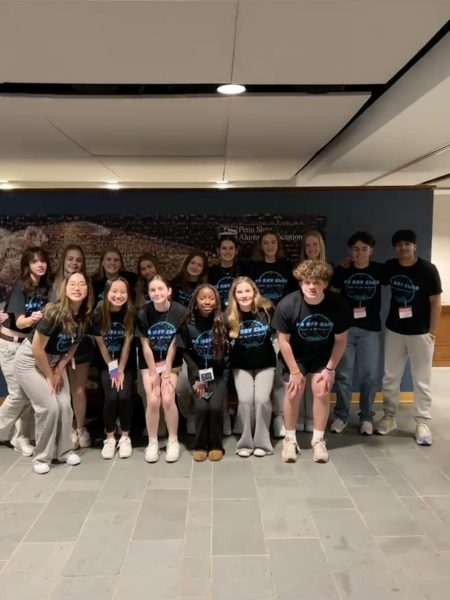Township’s first E-Sports Club shows significant potential
January 6, 2020
The addition of the E-Sports Club has sparked controversy among Manheim Township High School students. With the up-and-coming trend of commercializing video games, some people struggle to deem the source of entertainment valid and worthy of earning millions of dollars.
“To put it at the core, people think that it’s not something serious. That it’s a joke,” George Vekios, the club’s vice president, said. Vekios said that “it also takes time to get it ingrained in school culture, though. It just takes time.”
This fall season, NASEF (North America Scholastic E-Sports Federation), which is based in California, is hosting a tournament for the game Overwatch. Every Wednesday at 3:30 p.m., the two Township teams, Team Blue and Team White, compete against other schools in the Eastern Bracket. A different map is chosen each week by NASEF, and the players not only have to be successful at performing one style of game play, but they also have to be able to effectively accomplish four types of game modes: Assault, Control, Hybrid, and Payload.
Assault mode is when the attacking team must claim two capture points that the defending team occupies until time runs out. A capture point is an area that players must claim for a certain period of time to gain points. Control is when only one capture point is present that the team has to claim until a bar reaches 100 percent. In Payload, the players have to escort a cart to the end of the map. The final mode, Hybrid, is a combination of the Assault and Payload modes. First, the players must assault a selected area, and then they Payload.
If a team accomplishes two of the aforementioned modes, they earn one point. Matches are best out of three, so a team has to win two points (or four rounds) in order to win the entire match. Nine people are on each time, three of which are alternates.
There are 33 heroes in Overwatch, each having different abilities. During practices, which are held every Monday and Thursday after school, players use different heros, rotate around the map, and sometimes scrimmage another team.
Fletcher Hennerman (president), George Vekios (vice president), Diego Urena (treasurer), and Abel Ismael (secretary), all contributed to forming the club last year. The idea of an E-Sports Club developed in a computer science class where the officers wondered why the school did not offer an E-Sports team. Deciding to carry out the task themselves, the officers approached administration, who was looking to start up a new club but needed student interest. The Emerald Foundation, which covers the cost for Township to enter NASEF tournaments, also happened to reach out at around the same time. “[The] Emerald Foundation does a lot. They gave us $3,000 to start the club [because] we were one of the first teams in PA to do that,” Urena said. The Emerald Foundation would cover the costs of the entire trip to California if Township qualified for the next round in the tournament.
Despite easily acquiring administration approval, the officers encountered many obstacles in starting up the club. Another group of students had a different vision but similar concept for the club. Compromises were made after both groups presented their visions to administration. More importantly, they had to meet fast approaching deadlines, leaving them no more than two weeks to finalize the plan for the club in order to participate in the winter season.
The first year, the club had 15 members, mostly juniors and seniors. Now, this year with an even mix of all classes, E-Sports has 54 members, including advisors.
“Our team’s rolling. We’re pretty good this year. We only won one game last year by default because the team didn’t show up. This year, team one [Team Blue] is undefeated and team two [Team White] is almost undefeated,” Senior Parker Teague said. Teague was involved from the beginning, being a part of the initial group chat. He helped further develop the idea with the officers and is a player on Team Blue.
Both Team Blue and Team White made it to playoffs, a single round elimination that lasts until January. Undefeated until the fourth round of playoffs, the penultimate round before heading to California, Manheim Township’s Team Blue lost to Xavier High School.
Similar to other school extracurricular activities, members participating in the club have to be academically eligible, and they experience tension between players. Individuals on Team White were frequently swapped in order to unify the members on each time because communication is a crucial aspect of the game. Being able to communicate contributes to a team’s success, hence the necessity for friendships to flourish between teammates. “Once you join a team and you’re put with other players, one of the biggest parts of playing is being able to communicate and play with them, which means you guys get pretty close,” Fletcher said.
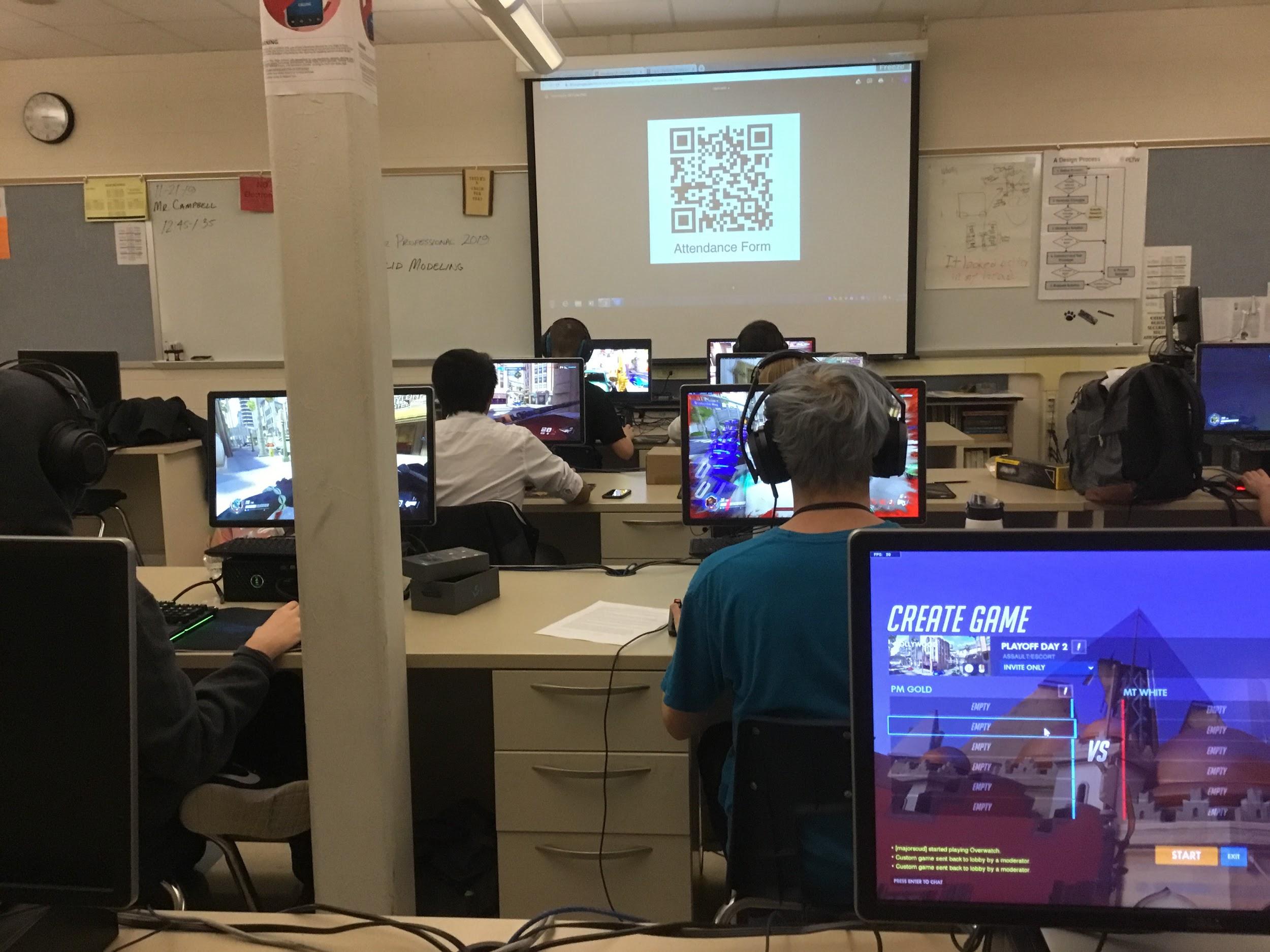
At the moment, the officers of E-Sports are focused on further developing the club and preparing for the winter season. “We are all seniors, so the big part of it is we’re trying to get as much done as we can,” Fletcher explains. “We’re getting jerseys together. We are trying to get sponsors, money and just basically trying to get as much as complete as we can before we graduate.”
Mason Godfrey, a senior, commissioned a logo for E-Sports that is being used for the jerseys. Currently, the jersey design is finalized and is being produced by the company the team is collaborating with.
“[The] hardest part currently is furthering the development of the club and sort of getting the expected things out to players and members. There’s the whole debacle of when we’re getting jerseys, when we’re getting mousepads, when we’re getting this, this and this. All these expectations we have, and a lot of people get pretty antsy about it. It gets difficult to stay on top of it,” Parker Teague said.
This year, the winter season is based on the game League of Legends, which follows a similar structure to the Overwatch Tournament. Many members of the club used practices to work on skills in preparation for the game rather than participating in the fall season’s Overwatch competition.
Matches for the season are always live streamed on the Twitch server, which is where the role of shoutcaster comes in, whose role is similar to a sport’s broadcaster. The term shoutcaster derives from a commentator who is so passionate and absorbed by a game that they’re shouting. Shoutcasters will talk about the game, inform those who are watching what’s going on and predicting what might happen next along with giving context to viewers through stats of players.
“Last year I wasn’t involved at all, but I was interested…So this year I just wanted to see if there’s anything I could do. I was going to be a player, but I don’t have a pc. But I knew I could contribute by making any designs that they needed or the Shoutcaster role that they made,” Jackson Palmer, the current Shoutcaster, said.
Palmer incorporates the technicalities of the game with comedy on Twitch at mtesports.
“[Live streams] It’s still a work in progress, since this is the first time we’re doing it. Things might not be very official and then it might seem kind of rag-tagged and pieced together with all of it. But it’s definitely being worked on. It can be even better from where we’re going. If you need something to watch, it’s perfect, because they don’t stream other [school] sports games,” Palmer said.
There are still many ways to get involved with the club besides just playing. Shoutcasting, social media, filming videos, and organizing events contribute to the success of the club. In order to keep fans up to date with the progress of the club, updates are posted on their Instagram, at mthsesports, and Twitter, at the handle MTHSesports.
Jackson Palmer summarizes the creation of E-Sports as, “It is student innovation at its purest.”


